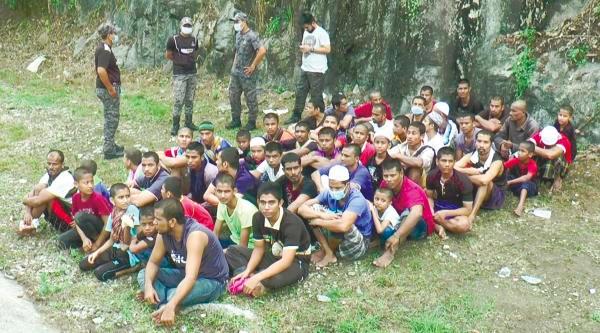PETALING JAYA: The Malaysian Consultative Council of Islamic Organisations, an NGO, has objected to the call by Malaysian Community Care Foundation chairman Halim Ishak for the government to deport Rohingya refugees following reports of a human trafficking cartel involving some of them and Malaysians.
Council president Azmi Abdul Hamid said the call did not make sense as the Rohingya’s country of origin, which is Myanmar, would reject them.
He said Malaysia needed to be firm when dealing with human trafficking syndicates since such matters impact the country’s ranking in the US State Department’s annual human trafficking report.
Last year, Malaysia was placed on the Tier 2 Watch List, which is a slight improvement following two years on the lowest rank, Tier 3. This ranking can potentially put the country at risk of export sanctions.
“Instead of proposing that the Rohingya be deported, we should initiate a similar programme as the 6P legislation of 2011, in which the Home Ministry legalised as many as two million illegal immigrants working in the country.”
He said such a programme would make it easier to manage the Rohingya as it encompasses their registration, legalisation, amnesty, supervision, enforcement and deportation.
“This is a more practical way of managing them. It is time to revisit the 6P programme. Once we document 80% of the Rohingya, it will be much easier to include them in the workforce and get them integrated into our society. This way, they can also be an asset to the country.”
However, Azmi said in the process of implementing the programme, the government must also be firm that it cannot accept more refugees into the country.
On Halim’s call for the UN High Commissioner for Refugees (UNHCR) office in the country to be closed on allegations that it did not play an effective role in refugee resettlement, Azmi said it was “too simplistic” a solution.
He added that this is because Malaysia is unable to deal with refugees and undocumented migrants.
“We only know how to round them up and place them in detention centres that only serves to make things worse,” Azmi said, adding that people failed to understand the history of the UNHCR’s establishment in the country.
He said the UNHCR began operating in Malaysia when Vietnamese boat people landed on our shores in 1979.
“Malaysia did not know how to deal with the refugees properly, which is why the UNHCR came into the picture.”
Azmi also stressed that Rohingya children should be allowed access to education at public schools or those set up by the community in collaboration with NGOs.
He said some of the Rohingya children were born in the country and ought to be assisted to integrate and socialise with Malaysians.









